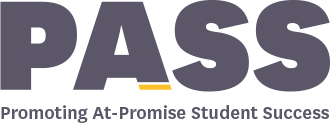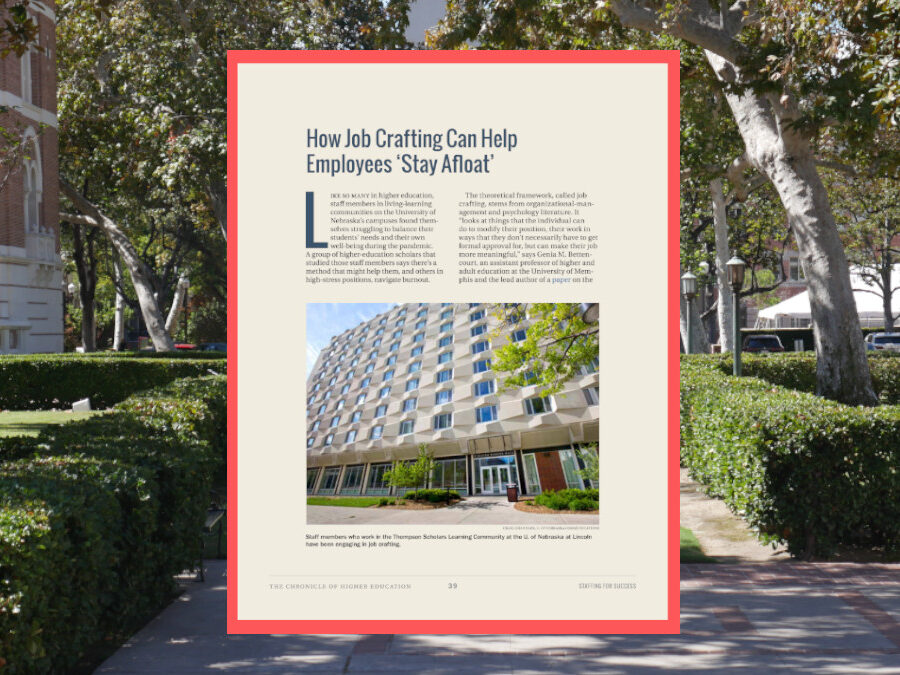Like so many in higher education, staff members in living-learning communities on the University of Nebraska’s campuses found themselves struggling to balance their students’ needs and their own well-being during the pandemic. Our PASS scholars who studied those staff members say there’s a method that might help them, and others in high-stress positions, navigate burnout.
That method is Job Crafting.
In ‘Staffing for Success,’ a new report recently released by The Chronicle for Higher Education, the theoretical framework of Job Crafting is explored. PASS team researchers Genia M. Bettencourt, Lauren N. Irwin, Joseph A. Kitchen, and Zoë B. Corwin analyzed how, during the pandemic, the Nebraska staff members were using an approach to job crafting that has three dimensions. ‘Task Crafting’ alters the scope or number of tasks involved in one’s job; ‘Relational Crafting’ changes whom one interacts with on the job; while ‘Cognitive Crafting’ focuses on thinking differently about the job itself.
At times, Bettencourt says, crafting their jobs proved a helpful measure to the Nebraska employees. But she sees it as a temporary fix; a way to get through the stress of the pandemic, but not a solution for the problematic worker norms that pervade the profession.
Access the full article in The Chronicle’s ‘Staffing for Success’ report, and learn more about the Pullias Center for Higher Education at pullias.usc.edu.


